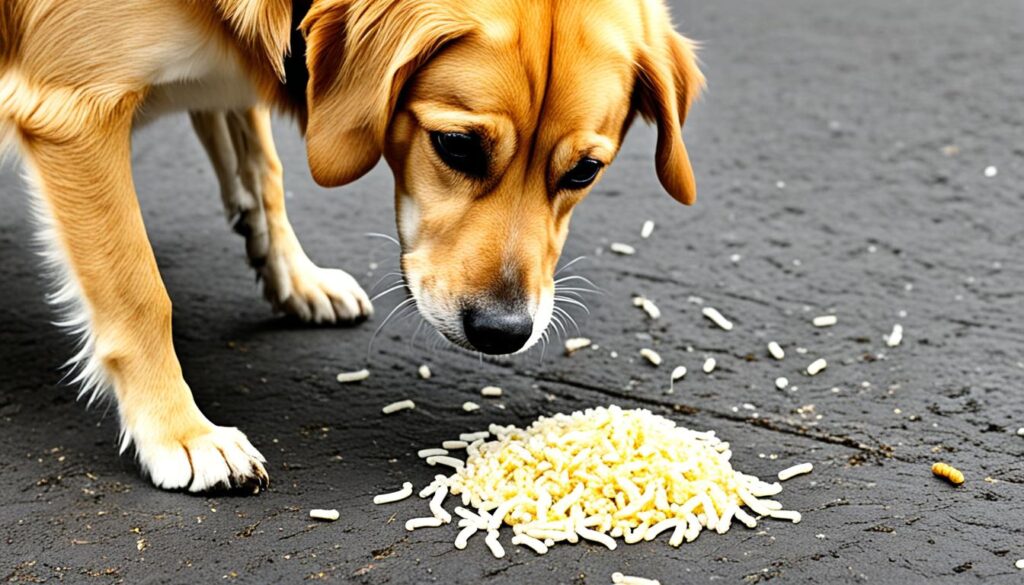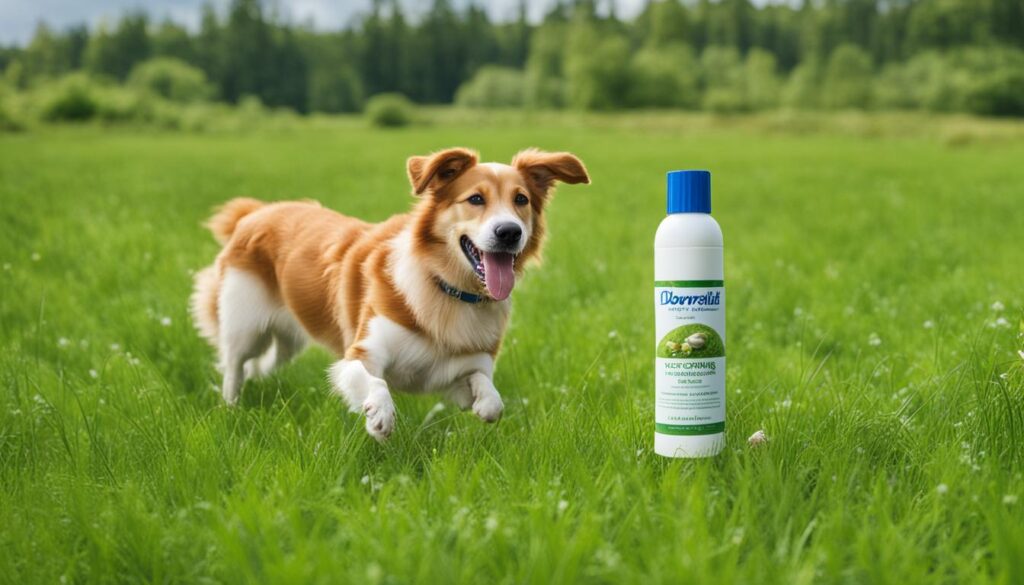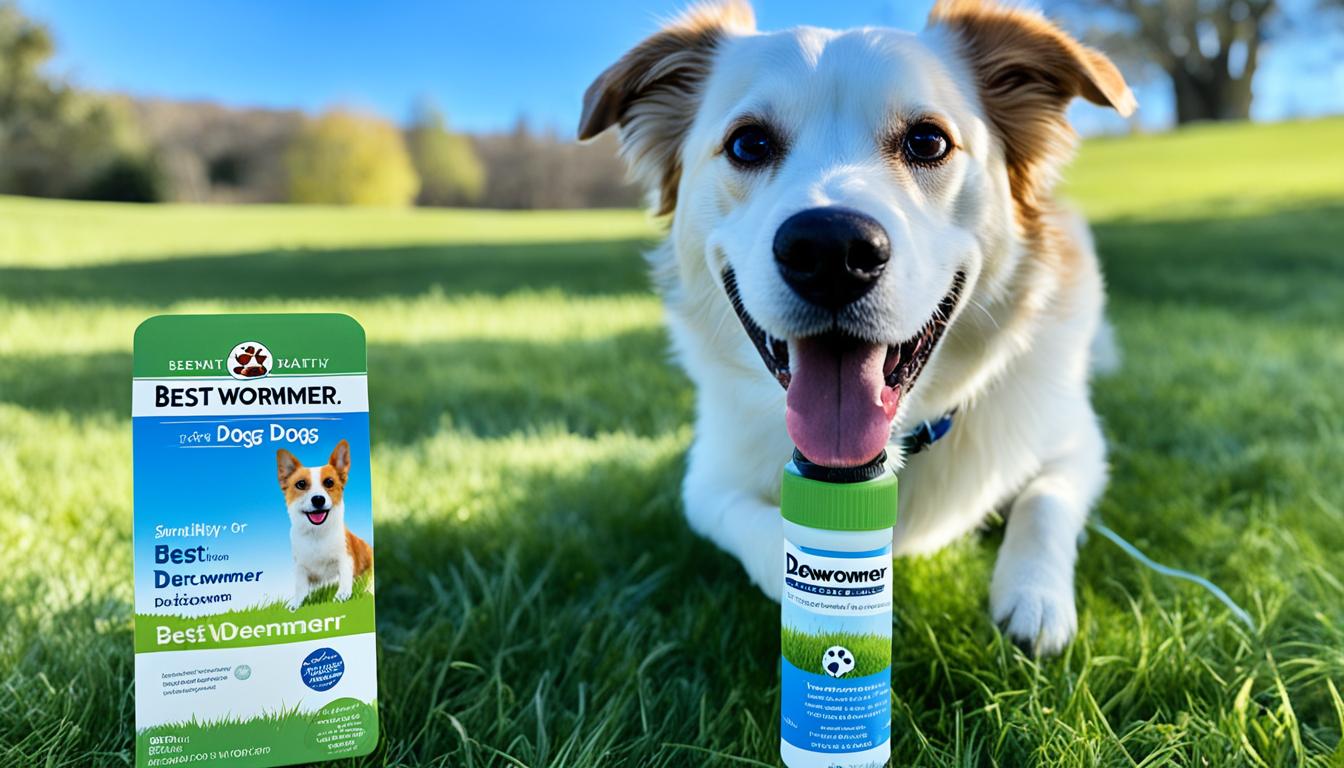As an Amazon Associate I earn from qualifying purchases.
Imagine the joy of watching your furry friend sprinting through a sun-kissed meadow, tail wagging with unadulterated happiness. The bond you share with your dog is one of pure love and companionship, and you would do anything to keep them healthy and thriving. But did you know that worms can silently invade your dog’s body, causing discomfort and potentially serious health issues?
Dogs are vulnerable to various types of worms, regardless of their living environment or lifestyle. That’s why regular deworming is crucial to ensure your dog stays happy and worm-free. Whether you have a playful puppy or a loyal senior dog, taking the necessary steps to prevent and treat worms is an essential part of responsible pet ownership.
In this article, we will provide you with everything you need to know about deworming your dog. From understanding the different types of worms to recognizing the signs of an infestation, we’ve got you covered. We’ll also discuss effective treatment options and share tips on preventing future infestations.
So, stay with us as we embark on a journey to keep your beloved companion safe and healthy. Let’s chase those worms away together!
Key Takeaways:
- Dogs are susceptible to worms: Regardless of their environment or lifestyle, dogs can be affected by various types of worms.
- Regular deworming is crucial: Establishing a routine deworming schedule is essential to keep your dog healthy and free from worms.
- Recognizing the signs of worms: Knowing the common symptoms of worm infestations can help you detect and address the issue promptly.
- Effective treatment options are available: Your veterinarian can recommend the best deworming medications to eliminate worms and keep your dog parasite-free.
- Preventing future infestations: By following preventive measures, such as proper hygiene and regular veterinary check-ups, you can reduce the risk of future worm infestations.
Types of Worms in Dogs: A Complete Guide
When it comes to worm infestations in dogs, knowledge is power. Understanding the different types of worms that can infect your furry friend is essential to ensure their health and well-being. Here’s a complete guide to the most common worms found in dogs: hookworms, roundworms, tapeworms, and whipworms.
Hookworms: These small but mighty worms attach to the intestinal wall and suck blood, posing a serious threat to dogs, especially puppies. They can cause anemia, weakness, vomiting, and diarrhea. Prevention and regular deworming are crucial to protect your dog from hookworms.
Roundworms: Common in puppies, roundworms can also infect adult dogs. These worms can be transmitted through the mother’s milk or by coming into contact with contaminated feces. Roundworm infestations can cause poor growth, a potbellied appearance, coughing, and diarrhea.
Tapeworms: Flat, segmented worms, tapeworms require fleas to act as intermediate hosts to infect dogs. If your dog ingests a flea, it can lead to a tapeworm infestation. Look out for symptoms like rice-like segments in your dog’s feces or around their anal area.
Whipworms: Living in the cecum, whipworms can cause weight loss, anemia, and other gastrointestinal symptoms. Infected dogs may experience chronic diarrhea that contains mucus or blood. It’s important to note that whipworm eggs can survive in the environment for years, making prevention and regular deworming essential.
To effectively treat and prevent these worms, it’s crucial to follow a deworming schedule recommended by your veterinarian. Regular check-ups and fecal examinations can help detect any worm infestations early on, ensuring your dog stays healthy and worm-free.
| Worm Type | Description | Transmission | Symptoms |
|---|---|---|---|
| Hookworms | Small worms that attach to the intestinal wall and suck blood. | Oral ingestion of larvae, contact with contaminated soil | Anemia, weakness, vomiting, diarrhea |
| Roundworms | Long, spaghetti-like worms that can grow up to several inches. | Oral ingestion of eggs, contact with contaminated feces | Poor growth, potbellied appearance, coughing, diarrhea |
| Tapeworms | Flat, segmented worms that can reach several inches in length. | Ingestion of fleas or other intermediate hosts | Rice-like segments in feces or around the anal area |
| Whipworms | Thread-like worms that reside in the cecum. | Oral ingestion of eggs, contact with contaminated soil | Weight loss, chronic diarrhea with mucus or blood |
Remember, the best defense against worms in dogs is preventive care through regular deworming and maintaining a clean living environment. Make sure to consult with your veterinarian to develop a deworming schedule that suits your dog’s needs.
Signs of Worms in Dogs: How to Tell if Your Dog Has Worms
Spotting the signs of worms in dogs can be a tricky task, as some dogs may not display any symptoms at all. However, it’s important to be vigilant and keep an eye out for common indicators that your dog may have worms. Here are some key signs to watch for:
- Abdominal pain: If your dog seems to be in discomfort and frequently exhibits signs of abdominal pain, such as whimpering or restlessness, it could be a sign of worms.
- Diarrhea: Frequent loose stools or diarrhea can be a symptom of worms, especially if you notice blood or mucus in the stool.
- Vomiting: Worms can cause dogs to vomit, especially if the infestation is severe. Keep an eye out for any sudden or persistent episodes of vomiting.
- Gas and bloating: Excessive flatulence or a bloated abdomen can indicate the presence of worms in dogs.
- Fatigue: If your dog is unusually tired or lacks energy, it could be a sign that worms are affecting their overall health and vitality.
- Unexplained weight loss: Despite a normal appetite, if your dog is losing weight inexplicably, it may be a result of worms stealing vital nutrients from their body.
- Abdominal tenderness: When you gently press your hand against your dog’s abdomen, if they exhibit signs of discomfort or pain, it could be an indication of worms.
If you observe any of these symptoms or have a suspicion that your dog might have worms, it’s essential to consult with your veterinarian for a proper diagnosis. Your veterinarian may perform a fecal exam to confirm the presence of worms and identify the specific type of worms affecting your dog. This will help determine the most appropriate deworming treatment.
Remember, early detection and treatment are key to ensuring your dog’s well-being. Regular check-ups and proactive monitoring for signs of worms are essential for maintaining your dog’s health and happiness.

How to Get Rid of Worms in Dogs: Effective Treatment Options
When it comes to getting rid of worms in dogs, there are several effective treatment options available. Your veterinarian will prescribe deworming medications based on the specific type of worms your dog has. These medications can be administered orally, through injections, or as topical treatments, depending on the recommendation of your vet.
It is crucial to follow the dosage instructions provided by your vet to ensure the effectiveness of the treatment. Proper administration and adherence to the prescribed dosages will help eliminate the worms and prevent further infestations. Remember, consistency is key to successful deworming.
While deworming medications are the most common approach, there are also natural deworming options available. However, the efficacy of natural dewormers may vary, and it is advisable to discuss them with your vet before considering them as a sole treatment method.
It’s important to note that deworming medications, whether prescribed or natural, may have potential side effects. These side effects can include gastrointestinal upset or allergic reactions. If you notice any adverse reactions or changes in your dog’s behavior or health, it is crucial to contact your veterinarian immediately for guidance and support.

Deworming your dog is an essential part of their overall health and well-being. It helps protect them from the harmful effects of worms and ensures a happy and robust life.
Remember, when it comes to deworming your dog, always consult with your veterinarian. They will provide you with the best advice and treatment options tailored to your dog’s specific needs.
Conclusion
Congratulations on taking the necessary steps to protect your dog’s health and well-being through deworming! By following a deworming schedule recommended by your veterinarian and using effective deworming medications, you can prevent worms in dogs and ensure your furry friend stays happy and healthy.
Regular monitoring for signs of worms and prompt treatment when necessary is crucial. Remember, prevention is better than cure! It’s essential to consult with your vet for the best treatment options and to address any concerns or questions you may have. Their expertise will guide you in making informed decisions to keep your dog worm-free.
In addition to regular deworming, maintaining good hygiene practices is key. Clean up your dog’s waste promptly, ensure they have a clean living environment, and practice proper flea control. These measures, combined with deworming, will provide comprehensive protection against worms in dogs.
By prioritizing your dog’s deworming routine, you are demonstrating your commitment to their health and happiness. Preventing worms in dogs is essential for their overall well-being, as worms can cause a range of health issues. Take the lead in providing your furry companion with a worm-free life, and reap the rewards of having a healthy and vibrant dog by your side.
FAQ
What is the best dewormer for dogs?
How often should I deworm my dog?
Can I use a natural dewormer for my dog?
What are the signs of worms in dogs?
How do I get rid of worms in my dog?
Do deworming medications have side effects?
How can I prevent my dog from getting worms?
Source Links
- https://www.petmd.com/dog/general-health/evr_dg_intestinal_worms_in_dogs
- https://rexipets.com/blogs/the-latest/side-effects-of-deworming-a-dog
- https://rexipets.com/blogs/the-latest/how-long-should-i-wait-to-feed-my-dog-after-deworming
As an Amazon Associate I earn from qualifying purchases.

